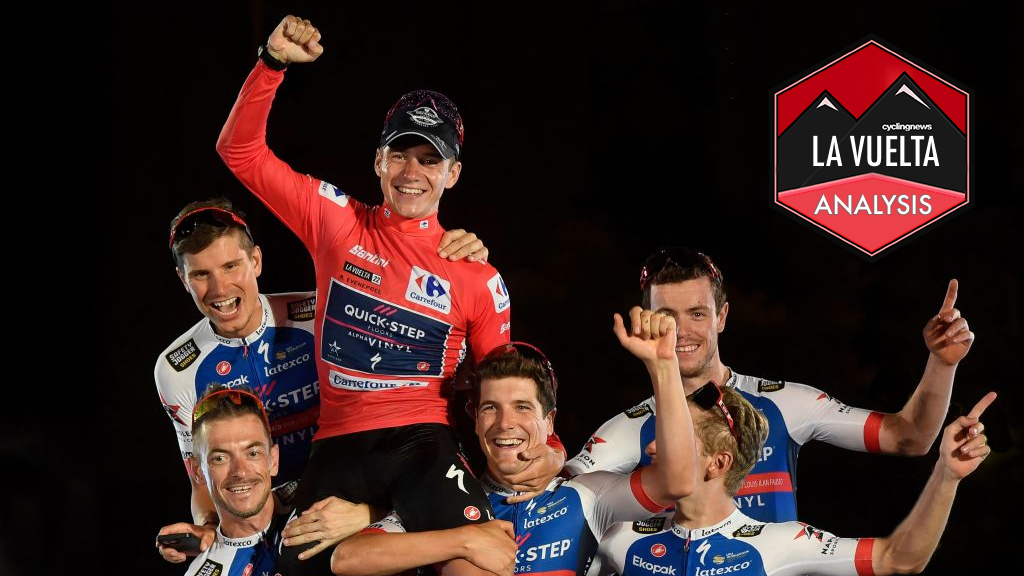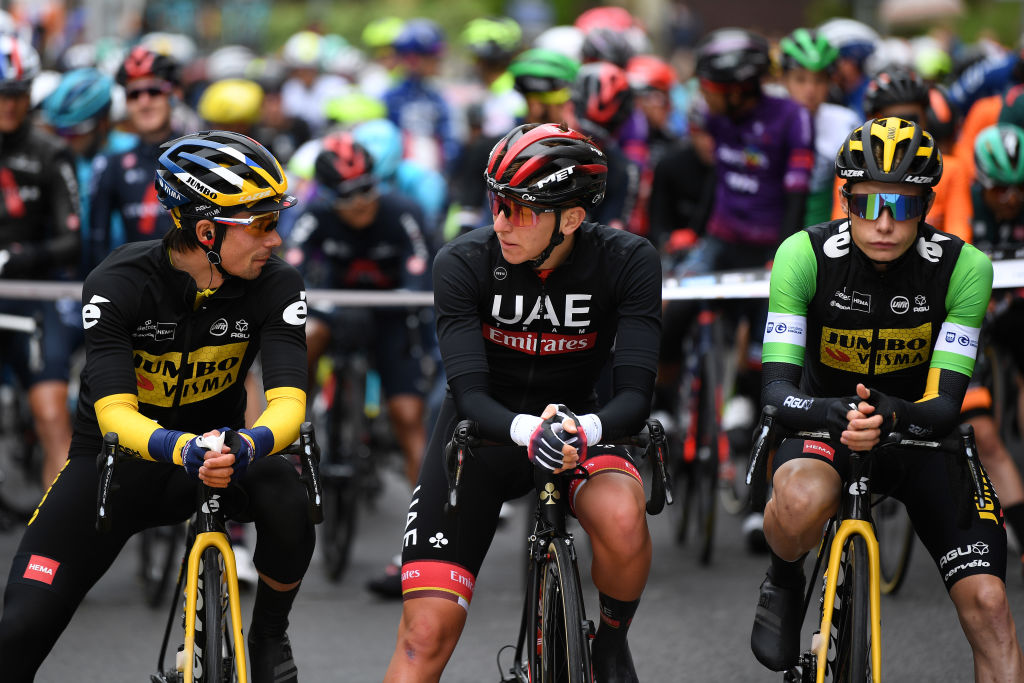Philippa York analysis: The only way is up for Remco Evenepoel
Following Vuelta a España victory comes the conundrum of how soon the Belgian should take on the Tour de France

The 77th Vuelta a España concluded with Remco Evenepoel standing on the top step of the podium and no one is really surprised that at the age of 22 he has won his first Grand Tour.
Ever since he burst into the professional ranks the young Belgian has produced one remarkable performance after another. One-day events, week-long stage races and Classic monuments have all been mastered and now in a natural progression he has followed those wins up with the most varied of the Grand Tours.
Even a career threatening crash at Il Lombardia nearly two years ago has barely affected his rise to the very top of the pro hierarchy and now he faces a decision. Where does he go from here?
Actually if we're being truthful it's not where but when, and that means his Tour de France debut. For the moment the talk is of preferring a return to the Giro d'Italia, his first Grand Tour experience. However, there'll be clamour that he ought to forgo that choice and go straight to the Tour de France in July.
That's perfectly understandable given his performances at the Vuelta and yet there are some caveats to consider in the decision making process before committing to stepping up to the most important race on the professional calendar.
Firstly let's start with idea that the Giro is a natural progression in building towards a serious Tour de France challenge. A quick look through the past three editions gives the following winners, Richard Carapaz, Tao Geoghegan Hart and Jai Hindley, all of whom were present and soundly defeated in Evenepoel's march to victory in Madrid.
None of them were ever serious contenders and that's saying as much about the current form of those individual riders as it is about the slow descent of the Italian race's status. Now that it comes before the Tour it's been avoided by the favourites for that race due to the risk of leaving too much energy on Italian roads.
Get The Leadout Newsletter
The latest race content, interviews, features, reviews and expert buying guides, direct to your inbox!
The perfect example is Mathieu van der Poel's disastrous Tour de France after a Giro where, for the first 10 stages, he was his usual effervescent self. The risk of not recovering is now judged too great and so to send Evenepoel to Italy certainly means a Tour de France challenge is no longer considered a serious proposition.
On the other hand the final week of the first of the Grand Tours would be more of a true test of where Evenepoel's climbing really lies. The Vuelta is hard but it rarely has consecutive big days in the mountains the way that happens in the Alps or Dolomites.
Sure, the ascents of the opening week in northern Spain have steep ramps of the genre that properly hurt, but compared to the longer mountains that you have to negotiate later on they are raced in a different manner and have a lesser cost in terms of the fatigue accumulated. Carapaz's capitulation in the final days of this year's Giro showed just how hard it can be and he's arguably a better climber than Evenepoel when fresh.
If Evenepoel chooses to head to Italy next year it would be more a test of him against the classic mountains on the route than a competition with the last few winners of the race. He's already shown himself to be better than them and it would certainly be a sideways move rather than a step up to taking on Tour de France champions Tadej Pogačar and Jonas Vingegaard, plus Primož Roglič, in July.

His Spanish triumph has certainly placed Evenepoel in the potential group of Tour de France favourites and that in itself will mean the expectations of him will be greater than they already are. The way he dealt with Roglič showed a progression physically and more importantly an emotional and psychological maturity that could have been questioned before. He seized his opportunities whenever possible and defended with much more control when he had a slightly below-par day. It's not always how special you are on your best days but how good you are when you’re not.
Roglič had his bad day in the opening week rather than the last one, which may have been due to the injuries sustained at the Tour not being fully healed, so we'll never know how much pressure he could have applied to Evenepoel later on. The indication was it was going to be a lot and with all due respect to Movistar leader Enric Mas, and the rest of the top 10 competitors, they aren't on the same level as the three time Vuelta champion. Only the Slovenian was going to be a problem and once he was gone all the others were perfectly controllable.
That won’t be the case when Evenepoel at the Tour de France encounters Pogačar and Vingegaard fully prepared and supported by their respective teams and therein lies another challenge for Patrick Lefevere. How does he manage the personal ambitions of Evenepoel alongside the Classic type of riders that dominate his squad?
The expectations of the whole Belgian nation add to the dilemma and it's not as if he can just buy in talent that will meet the needs of a Tour GC push because Jumbo-Visma have taken five years or more to establish where he needs to be. Lefevere is a canny operator but it'll take a substantial increase in budget from the likes of QuickStep-AlphaVinyl to begin that process and there are no guarantees that it'll be successful immediately.
If there's one thing that's quite clear it's that Remco Evenepoel has shown himself to have developed to a level where he can be considered amongst the Tour favourites when he does line up there, not just as a contender but as a serious podium proposition.
When that will happen is a conundrum, because it's a project that is of a longer term nature than the annual progressions the young Belgian has enjoyed so far. However the prospect is certainly a fascinating one.
Philippa York is a long-standing Cyclingnews contributor, providing expert racing analysis. As one of the early British racers to take the plunge and relocate to France with the famed ACBB club in the 1980's, she was the inspiration for a generation of racing cyclists – and cycling fans – from the UK.
The Glaswegian gained a contract with Peugeot in 1980, making her Tour de France debut in 1983 and taking a solo win in Bagnères-de-Luchon in the Pyrenees, the mountain range which would prove a happy hunting ground throughout her Tour career.
The following year's race would prove to be one of her finest seasons, becoming the first rider from the UK to win the polka dot jersey at the Tour, whilst also becoming Britain's highest-ever placed GC finisher with 4th spot.
She finished runner-up at the Vuelta a España in 1985 and 1986, to Pedro Delgado and Álvaro Pino respectively, and at the Giro d'Italia in 1987. Stage race victories include the Volta a Catalunya (1985), Tour of Britain (1989) and Critérium du Dauphiné Libéré (1990). York retired from professional cycling as reigning British champion following the collapse of Le Groupement in 1995.
